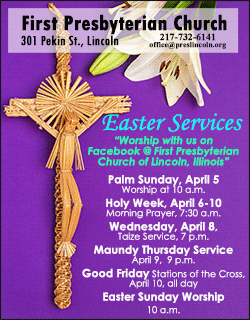|
 Gov. J.B. Pritzker announced in his daily press conference on
March 31 that the state’s stay-at-home order will be extended through the end of
April to stop the spread of COVID-19. The order had been set to expire on April
7. Gov. J.B. Pritzker announced in his daily press conference on
March 31 that the state’s stay-at-home order will be extended through the end of
April to stop the spread of COVID-19. The order had been set to expire on April
7.
The executive order he will sign on April 1 will extend the state’s disaster
proclamation and ban on classroom learning through April 30. Pritzker has
committed to periodically evaluating the date as time goes on to see if it
should be extended or lifted early.
Social distancing guidelines will be extended nationally through April 30 as
well, the White House announced on March 30.
 A study by the University of Washington estimates Illinois’ number of
coronavirus cases will peak around April 18 with about 88 deaths on that day.
Total deaths were projected at 2,326 through Aug. 4 by the study. The state’s
number of cases is not projected to level off until early May.
On March 31, the Illinois Department of Public Health announced 937 additional
cases of COVID-19 and 26 additional deaths from the pandemic. Illinois has seen
5,994 cases and 99 deaths so far.
[ to
top of second column] |

During the stay-at-home order, which began on March
21, Illinoisans are directed to stay home as much as possible.
Walks, driving on both local roads and interstate highways, as well
as going to grocery stores, gas stations and pharmacies are still
permitted, but only for essential travel. All non-essential
businesses have been ordered to close.
The order encourages Illinoisans to follow social
distancing guidelines and remain away from other people as much as
possible. Residents should not gather with others outside of their
homes, even during permitted activities such as running.
Symptoms of COVID-19 include a fever, shortness of breath and
coughing. The strength of the symptoms will vary from person to
person. If an individual exhibits symptoms, it is imperative they
immediately minimize contact with other people.
IDPH also maintains a hotline at 800-889-3931 for residents to call
with questions or if they are feeling symptoms. Local health
departments can direct people who are potentially sick on what to do
next. It is imperative people who may have COVID-19 do not show up
to hospitals or doctors’ offices without giving them prior
notification in order to limit the number of people who may become
exposed to the virus.
Click here to respond to the editor about this article
|